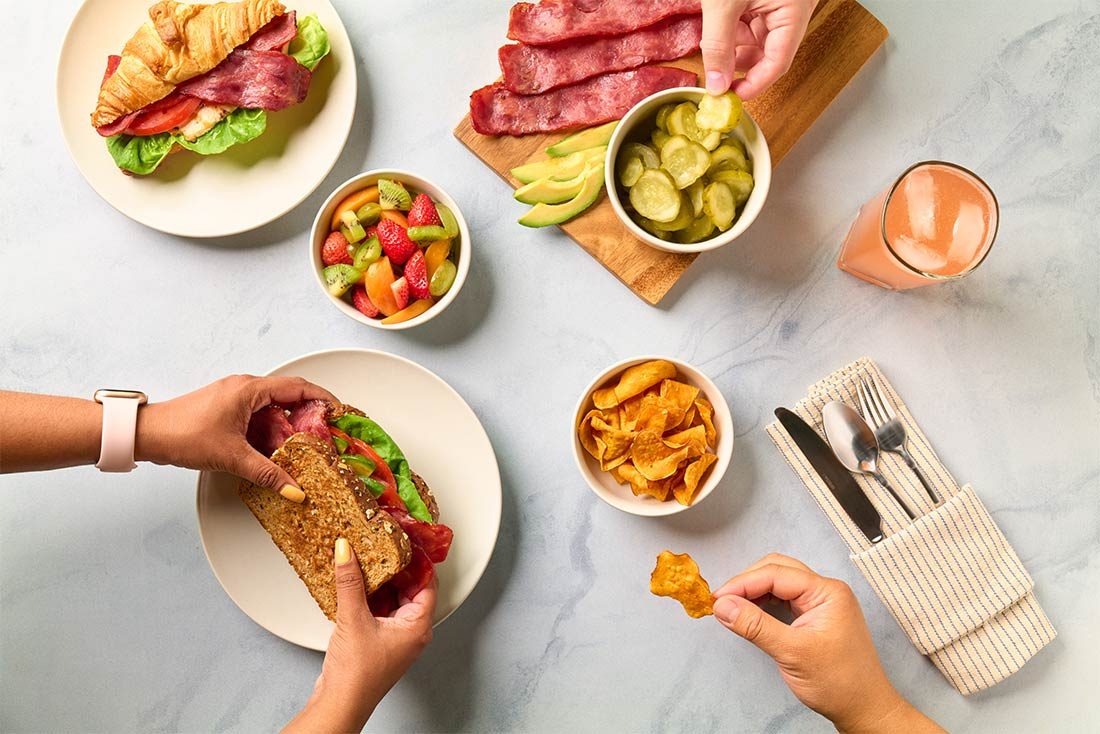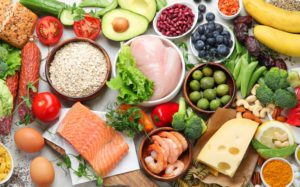High-protein diets aren’t just for athletes, gym buffs, or people following intensive fitness regimens—though there are good reasons why high protein meals are popular among these groups.
Protein promotes muscle growth, supports your metabolism, and improves the overall cell structure and composition of your body.
But just as importantly, it facilitates the transport of nutrients, the production of hormones, and the functioning of your immune system. So whether you want to gain strength, lose weight, or simply stay healthy, adding protein to your diet is key.
So, are you getting enough protein? Let’s look at why you should increase your protein intake to improve your general health—and then let’s look at how.
Why You Need Protein in Your Diet
Protein is essential for humans. Here are some major reasons we all need protein in our diets:
- Protein activates important hunger- and weight-regulating hormones that boost metabolism and help burn calories.
- Protein is the core component of your muscle mass, so it not only improves strength, but it also supports the body’s healing after an injury.
- Protein aids in counteracting natural muscle loss—and since it’s great for bones, it helps protect against fractures.
But how much protein do you actually need to maintain a healthy diet?
To answer that, you might have to do a bit of math: the minimum recommended dietary allowance (RDA) is measured at 0.36 grams of protein per pound of body weight. So if you weigh 150 pounds, make sure you’re consuming at least 54 grams of protein per day (150 x 0.36 = 54.)
For a rough estimate of your minimum protein intake based on your age, you can follow the USDA’s Dietary Guidelines for Americans:
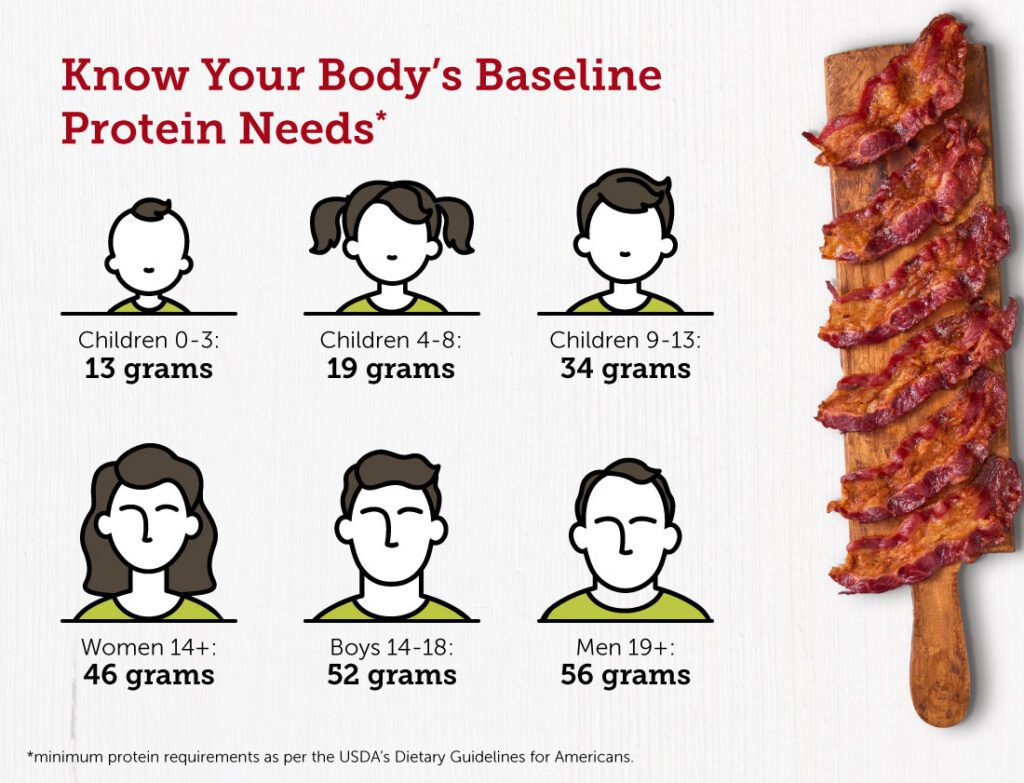
While lean meats can often be classified as a great source of protein, there are a number of additional protein sources you can choose from to add to a healthy diet.
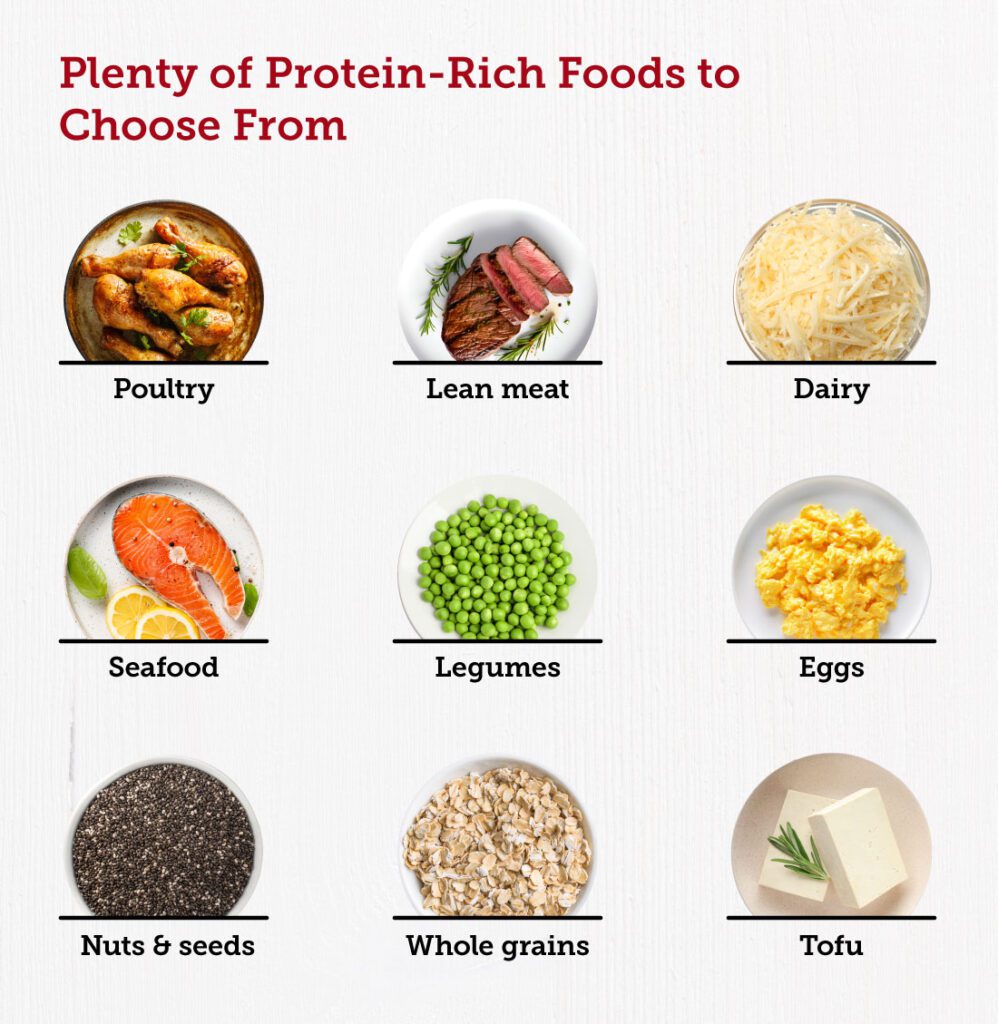
How You Can Increase Your Protein Intake
Kitchen staples like turkey bacon or beef bacon are excellent choices for adding protein-packed flavor to enhance the appeal of any meal.
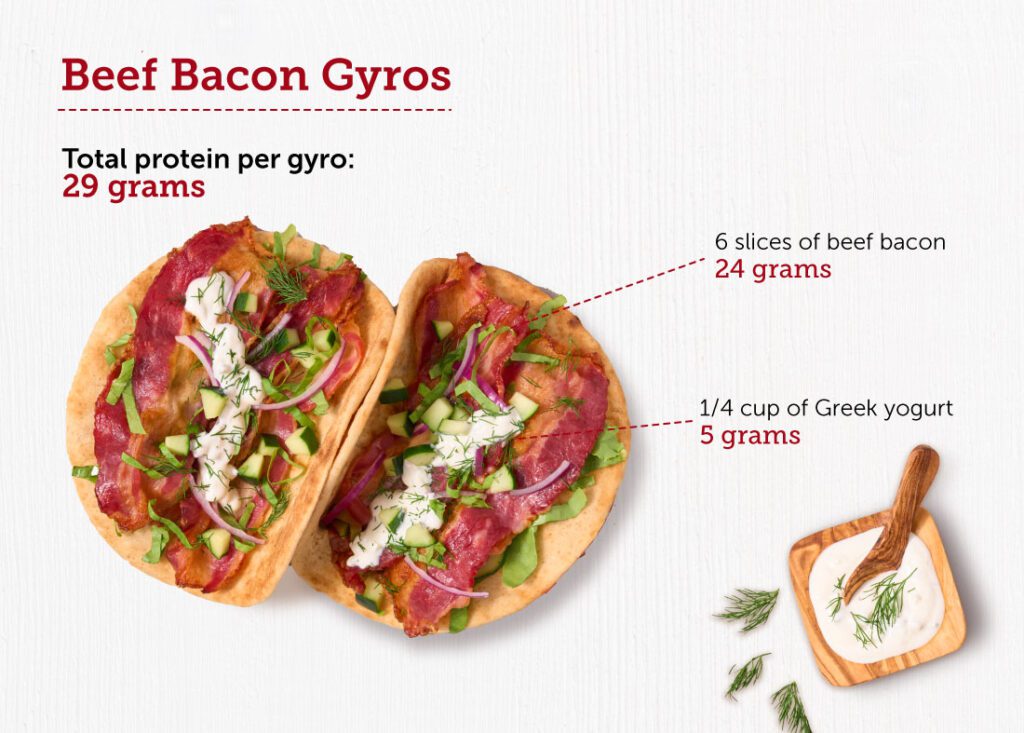
You can make some delicious gyros with beef bacon rather than shaved beef—and with 1/2 cup of Greek yogurt, you’re getting at least 29 grams of protein per gyro.
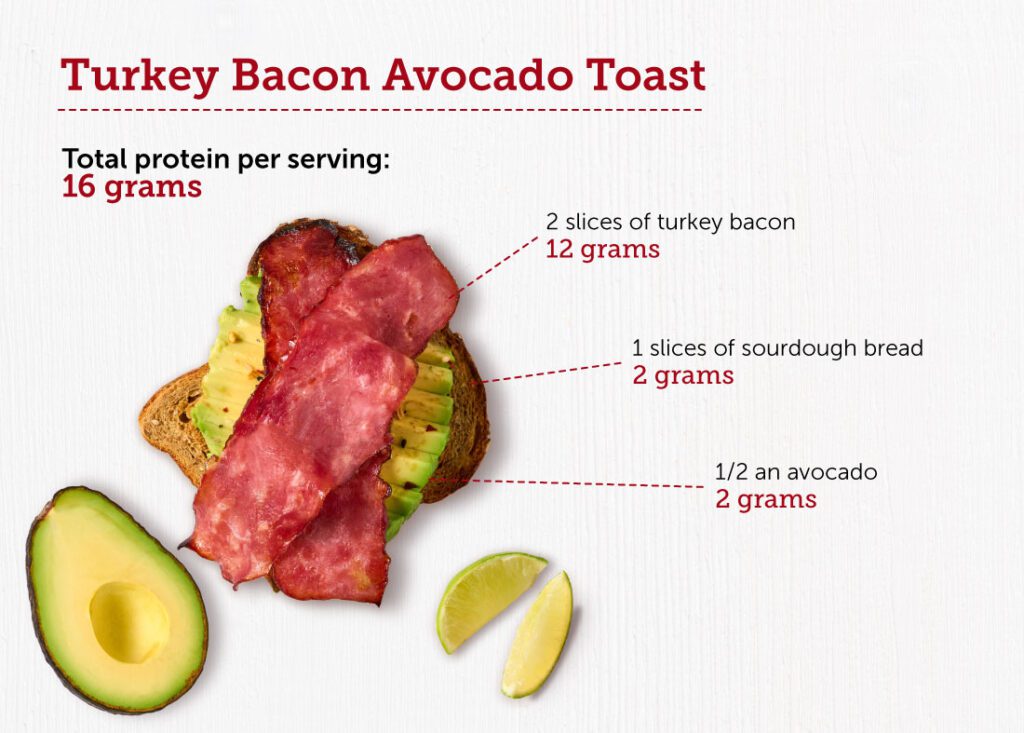
You can enhance a classic avocado toast with lean turkey bacon—and with half an avocado and slice of sourdough, it provides at least 16 grams of protein.
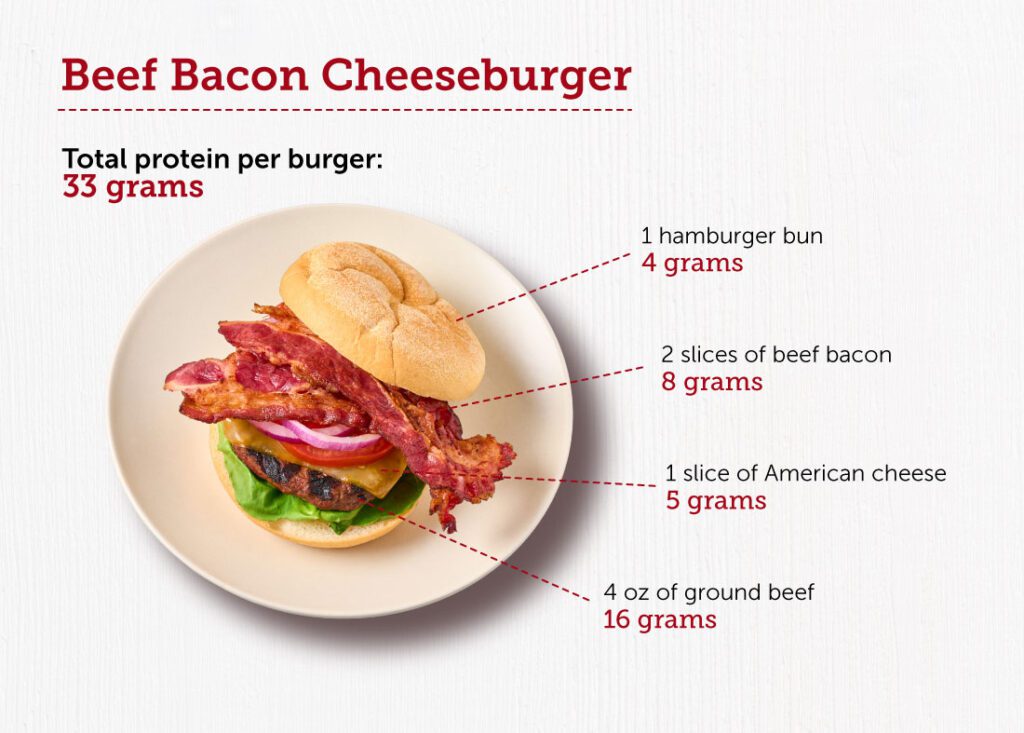
And you can easily top a hearty burger with savory beef bacon for an added meat protein boost. Include the perfect slice of American cheese, and you can enjoy at least 33 grams of protein with this meal.
Give Your Meals a Bacon Boost
Health experts recommend a range of strategies to increase your protein intake—from including eggs in your morning meal rather than just cereal, to enjoying protein-rich snacks, like hummus and vegetables, throughout the day. But for those who love bacon—and turkey and beef bacon specifically—an excellent source of protein is readily within reach, and can provide additional nutrition and flavor to some of your favorite recipes.
